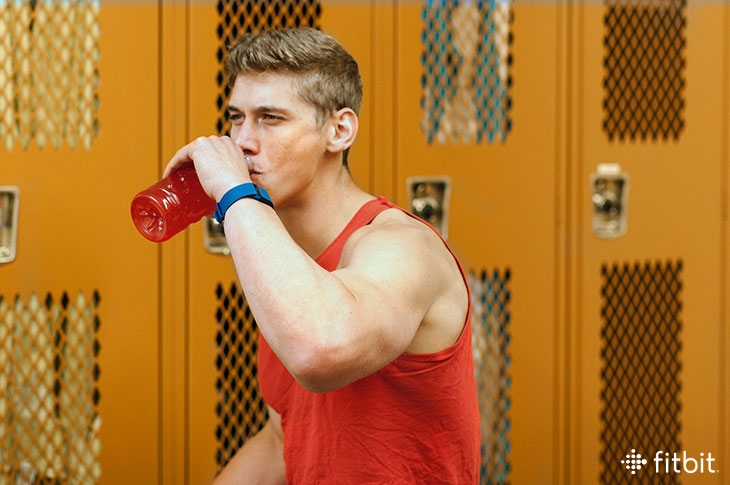
It’s summer, and it’s hot out there! No matter if you’re walking, running, or cycling, sweating under the sun can have you seeing neon. Standing in front of the cold drinks case, it can be tempting to reach for something ice blue, lime green, or tangerine. But do you really need that colorful drink?
Sports drinks date back to 1965, when Gatorade came up with a winning beverage for the University of Florida football team (go, Gators!). Now, it’s a billion-dollar industry, sponsoring every major league sport, with your favorite athletes starring in flashy ads. But these products were really designed for pro athletes, not everyday people. And they’ve evolved over the years. “Sports drinks today are not what they were in the 60s,” says Stacy Sims, PhD, a research scientist, and hydration expert for University of Waikato. “They started out as a simple solution. But now, they’re so over carb-ed and over calorie-d, they’re really not addressing your hydration needs.”
Understanding the Ingredients List
First, turn over that bottle, and take a closer look at the food label. Most sports drinks contain water, sugar, and a few electrolytes, primarily sodium, but maybe also calcium, potassium, and magnesium. Sugar provides carbs, offering quick and easy energy for tired muscles. The electrolytes help your body to absorb and retain fluids. But too much sugar only means excess calories—which could interfere with your weight-loss goals, if that’s why you happen to be getting sweaty in the first place. And of course, you really don’t need those artificial colors and flavors.
When Do You Really Need a Sports Drink?
Sports drinks can be a convenient and valuable tool for performance athletes, like triathletes, marathoners, and ultra-marathoners. They make sense in the following scenarios.
- If you’re working out for more than an hour and a half.
- If it’s particularly hot and humid out.
- If you’re doing high-intensity workouts.
- Any combo of the above: Any time you’re sweating a lot.
When you’re sweating a lot over long periods of time, your body loses water, but also smaller amounts of potassium, calcium, and magnesium. But Sims points out that the concept of replacing electrolytes is a little inaccurate. You just want enough sodium and other electrolytes to help you absorb and retain fluids, so you don’t pee them right back out again.
And even athletes worry about too much sugar in their drinks, although for different reasons. Too many carbs make liquids slower to absorb, so while they provide energy, they can get in the way of hydration. Many athletes dilute or alternate sports drinks with water, and seek out lighter products and brands. Sims doesn’t recommend super charged, super sugary drinks to her athletes. “I wouldn’t give them to my athletes, let alone a kid or a pregnant woman,” she explains. “If you’re standing in a convenience store and deciding between a standard sports drink and a can of cola, you might as well drink the Coke.”
The Better Way to Hydrate
The bottom line: If you’re hitting the gym for an hour, you’re probably fine sticking to plain water. But if you’re super sweaty after your workout and want to upgrade your water bottle, Sims does recommend a little bit of sugar and salt to really help your body take in and retain fluids. Her favorite homemade solution: Fill up your water bottle with 20 fluid ounces of water, and add 1/16 teaspoon iodized table salt (250 mg sodium) and 1 teaspoon maple syrup (4 g sugar). You can flavor that with lemon or cucumber, if you like. Sometimes, keeping it simple is surprisingly refreshing.
This information is for educational purposes only and is not intended as a substitute for medical diagnosis or treatment. You should not use this information to diagnose or treat a health problem or condition. Always check with your doctor before changing your diet, altering your sleep habits, taking supplements, or starting a new fitness routine.

Really great informational article. I was using the sports drink blindly and now I will start using it according to my requirement and training.
Thanks for the sharing the article.
WHAT ABOUT SPORT TABLETS LIKE NUUN ARE THOSE OK TO USE
WHAT ABOUT SPORT TABLETS LIKE NUUN ARE THEY OK TO USE